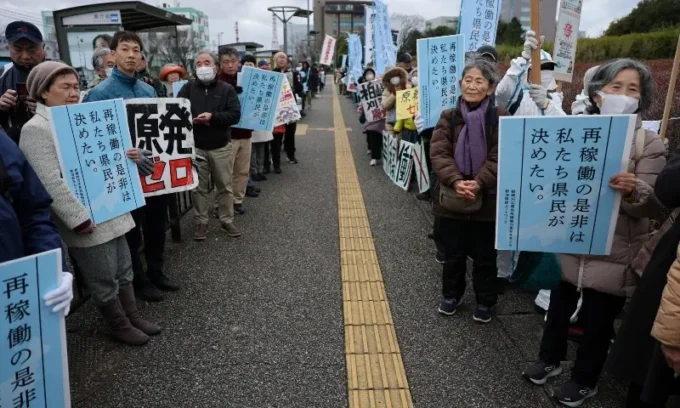SEOUL – South Korea is ramping up efforts to carve out space in the global artificial intelligence race, with tech giants and startups alike launching large language models (LLMs) tailored to Korean language and culture. From LG’s Exaone and Naver’s HyperClova X to SK Telecom’s A.X, Upstage’s Solar Pro, Kakao’s Kanana and NC AI’s Varco, these models reflect the country’s determination to reduce reliance on foreign platforms like OpenAI’s ChatGPT and Google’s Gemini.
At the center of this drive is the government’s “sovereign AI” initiative. Five consortia — led by LG AI Research, SKT, Naver, NC AI and startup Upstage — have been tasked with developing a homegrown foundation model capable of achieving at least 95 percent of the performance of frontier models. Two teams will eventually be selected through rigorous evaluations.
LG’s Exaone 4.0: Korea’s Flagship Model
LG AI Research is leading with Exaone 4.0, launched in July and already ranked among the world’s top models. Listed on the Artificial Analysis Intelligence Index, it placed 11th globally and first among Korean LLMs. Available in 32B and 1.2B parameter versions, Exaone supports reasoning, visual analysis, and enterprise applications across industries like finance, pharmaceuticals, and manufacturing. LG now plans to evolve it into “K-Exaone,” a next-generation frontier model.
SK Telecom’s A.X: Telecom-Tuned AI
Telecom leader SKT is advancing with its A.X series, designed specifically for Korean culture and language. Its A.X 4.0 model, built on Qwen 2.5, outperformed OpenAI’s GPT-4o in Korean benchmarks such as KMMLU and CLIcK. The company is already deploying the technology in customer service and plans to expand it into multimodal and reasoning functions later this year. SKT is pitching A.X as a secure, sovereign option for government and financial institutions seeking independence from foreign cloud providers.
Upstage’s Solar Pro 2: The Startup Challenger
Challenging Korea’s corporate heavyweights is Upstage, whose Solar Pro 2 impressed global observers with 31 billion parameters and top rankings in efficiency tests. It was the only Korean LLM labeled a “frontier model” by UK-based analysts. The system’s multilingual strength and cost-to-performance ratio even drew comment from Elon Musk, who defended his Grok model after Solar Pro’s strong showing. Upstage now plans to build Solar WBL, scaling up to 300 billion parameters.
Naver’s HyperClova X: Leveraging Korean Data
Internet giant Naver, the first mover in Korea’s LLM field, continues to expand its HyperClova lineup. HyperClova X, trained on far larger Korean-language datasets than GPT-4, consistently outperforms foreign rivals on Korean-specific benchmarks. Its submodels — Think, Dash, and Seed — target reasoning, lightweight, and open-source use cases, while the company works toward a multimodal “omnifoundation” model capable of processing text, images, audio, and video.
Kakao’s Kanana: Multimodal Expansion
Kakao, while not selected for the sovereign AI project, is advancing with its Kanana family of LLMs. Versions range from lightweight Nano to the powerful Flag model with 32.5 billion parameters. Its Kanana-o variant supports text, image, and speech inputs, while the company recently tied up with OpenAI to launch an AI agent across its platforms by year’s end.
NC AI’s Varco: Gaming to Sovereign AI
Gaming giant NCSoft’s subsidiary, NC AI, surprised many when it was selected for the government’s project. Drawing on over a decade of AI research, it launched the Varco line, culminating in Varco Vision 2.0, a multimodal model that processes both text and images. Despite being smaller in scale than global leaders, Varco has outperformed several open-source rivals in benchmarks covering Korean and English image understanding.
A Rapidly Evolving Landscape
Together, these efforts reflect South Korea’s ambition to secure a foothold in the AI landscape and reduce dependence on foreign systems. While global leaders still dominate with trillion-parameter models, Korean developers are betting on specialization in language, culture, efficiency, and sovereignty to make their mark.















Leave a comment